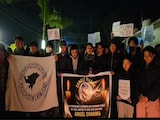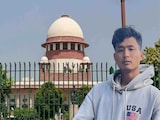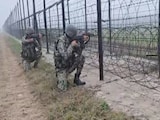External Affairs Minister (EAM) S Jaishankar on Thursday welcomed United Nations Secretary-General Antonio Guterres and other UNSC member states for a millets-based luncheon in New York.
"Delighted to welcome UNSG @antonioguterres and UNSC members for a 'millet lunch' in New York today," Jaishankar tweeted.
"As we head into International Year of Millets 2023, a strong message for their greater production, consumption and promotion would help global food security and enhance sustainability in agriculture," he said in another tweet.
The United Nations General Assembly at its 75th session in March 2021 declared 2023 the International Year of Millets (IYM 2023).
Spearheaded by Prime Minister Narendra Modi, the Government of India sponsored the proposal for International Year of Millets (IYM) 2023 which was accepted by the United Nations General Assembly (UNGA). The declaration has been instrumental for the Government of India to be at the forefront in celebrating the IYM.
According to the Food and Agriculture Organization (FOA), IYM 2023 will be an opportunity to raise awareness of, and direct policy attention to the nutritional and health benefits of millets and their suitability for cultivation under adverse and changing climatic conditions.
The Year will also promote the sustainable production of millets while highlighting their potential to provide new sustainable market opportunities for producers and consumers.
India assumed the monthly rotating Presidency of the UNSC in December.
This is the second time India got the Presidency after holding the top spot in August last year. India has presided over the Security Council during its two-year tenure as an elected member. UNSC rules of procedure say that the Council presidency rotates between each of the 15 members of the UNSC in alphabetical order.
During India's December Presidency of the UN Security Council, two high-level signature events took place on December 14-15.
On December 15, a high-level briefing on the theme - "Threats to International Peace and Security Caused by Terrorist Acts: Global Approach to Counter Terrorism - Challenges and Way Forward" sought to build a consensus on the principles of a global counter-terror architecture.
The high-level briefing aimed to enhance the Delhi Declaration adopted during the special meeting of the counter-terrorism committee held in October in India.
(Except for the headline, this story has not been edited by NDTV staff and is published from a syndicated feed.)















